Waypost Brewing is often a stopover for visitors on their way to somewhere else. It was always a destination for me.
I live in the middle of nowhere, but, also, the middle of everywhere. Less than an hour to the beach, a little further to a national park. Ski resorts are close enough to be a day trip in the winter. Chicago, Indianapolis, Grand Rapids, Detroit, Milwaukee, Cleveland, Cincinnati and Columbus are all within about a four hour drive. There’s plenty to do, if you’re willing to work for it a bit.
It’s how I feel about our brewing scene. There’s nothing of note right here, but I’m surrounded by incredible breweries that require a bit of a drive. Close enough to visit a few times a year, too far away to ever become a third place. Next week I’m losing one of those satellites along that hour-wide radius and craft beer drinkers in southwestern Michigan will be worse off for it.
Waypost opened in 2018, the lone attraction on the blue exit 30 highway sign on Interstate 196. While the property nestles up against the busy thoroughfare that transports tourists along the Lake Michigan coast between St. Joseph and Holland, it is also tucked into the vineyards and orchards that characterize this stretch of land. This is fruit country and the brewery’s location on a working farm and emphasis on locally grown ingredients fit right in from the start.
Co-owners Hannah Lee and Chuck Steinhardt got their starts in wine which can be seen in the influence the land has on the beers. Farmhouse has never been just a clever marketing term at Waypost. The beers have skewed rustic since the start, often Belgian, often spending time in wood, and often featuring culinary ingredients, many grown just steps outside the production space and taproom.
I visited for the first time in the summer of 2020 while on my way to Saugatuck Dunes State Park, the first and last time Waypost was the stopping point and not the destination. The long driveway past berry bushes, the red barn, the farm machinery in the field, it all captured my attention and set the brewery apart from the standardized industrial model. The taproom was bright and airy, blonde wood and white tile and paneling accented by greenery. I ordered a flight and settled into a picnic table outside, chickens running around my feet.
My tasting glasses spanned the spectrum of styles on offer. House Lager, an unfiltered zwickelbier. Sabrosa, the Sabro, Citra and CTZ-hopped 4.9% session IPA. Flora, a foeder-fermented saison conditioned on elderflower and dried hibiscus. Blueberry Basil Sour, the Berliner with farm-grown blueberries and Thai basil.
The lager stood up to my test of the technical skills of the brewer. The balanced IPA proved they weren’t just trying to overwhelm drinkers with hop saturation. The saison and Berliner wove in creativity and a sense of place and hooked me as a fan.
The bucolic location, the farmhouse focus, it all felt so familiar. The Lake Michigan shore version of my favorite breweries that could only exist in their unique locations like Jester King and Scratch? Possibly, but it was more than that. A little digging revealed that Lee was formerly the head brewer at Cultivate, a short-lived brewery a bit further down the coast and closer to home in Berrien Springs that had closed in 2017. It, too, had had a farmhouse focus, growing its own hops and barley, fulfilling a niche left empty in the area. I’d seen great potential in the space it was carving out and was saddened to see it close after just two years. But now I was happy to see Lee’s work carried out in a new iteration.
In 2021 I would make it back up for my birthday, this time sharing Waypost with my family and spreading my still-growing love for it. Two beers stood out on the visit, the Carolina Gold Lager made with Carolina Gold rice that tapped into my newfound appreciation of grains in beer, and Bière de Coupage, a blend of Brett-fermented saison aged for 14 months in oak and fresh mixed-fermentation saison. As the spotlight on mixed-fermentation was dying out, already weakening before COVID nearly eliminated it, here was a brewery keeping it alive in my own backyard.
It wouldn’t be until later that year that I’d have my first taste of the Waypost beer that I would end up consuming the most over the years. That fall the brewery took gold at the Great American Beer Festival for its simply named Saison. It was a validation of the work the brewery had been putting in, a nod to the technical prowess side of the business that so beautifully balanced the creativity.
Shockingly it’s a beer I’ve never enjoyed at the source, always picking up four-packs at one of the few stores where it is distributed to. The dry, effervescent finish has always made it a fantastic food-pairing beer. The stone fruit and floral notes rounded off with white pepper let it shine on its own as well.
The beers continued to get even better and explore the edges of styles. Bourbon-barrel lagered helles. Earl Grey tea-conditioned grisette. Urfa biber (Turkish chile pepper) spiced porter. A blackberry Berliner Weiss complemented with garden-grown herbs and flowers.
Waypost only recently concluded its series of Trappist ales, a Single, Dubbel, Tripel and Quadrupel. The Quad conditioned in a foudre where it deliberately picked up Brett, stripping out the body and producing a fascinating twist on the style that kept all the flavor complexity without overburdening it with the heavy body. That new work was being done only made the news that Waypost will be closing at the end of the year more shocking.
I’m not sure why Waypost is closing. The announcement was vague. But I have my guesses.
Thanks to the summer tourists, the southwest Michigan coast punches above its population and can sustain businesses that wouldn’t make it elsewhere while offering a cheaper cost of living. But that blessing can be a curse in the offseason, when traffic slows and it’s up to the locals to sustain the business. Waypost is close to population centers, smack dab in between South Haven and Saugatuck, a 15-minute drive from either, but it is also isolated. Without a kitchen or nearby restaurants, it’s not the kind of place where one can easily spend the evening. For many it is an add on, a stop on the way to somewhere else, if they can even get over the hurdle of going a little out of their way in the first place.
COVID and the changes it made to drinking habits surely played a role. The farmhouse focus was always going to be a hurdle to overcome. It’s not exactly what the masses are clamoring for. So many of the wineries that exist in the same area survive on the backs of unsophisticated sweet wines that appeal to the masses, paying the bills and freeing up space for the rest of the portfolio. That Waypost tried to make it without taking a similar approach is to be commended.
Breweries close all the time, now more frequently than at any time in the recent past. Most are quickly forgotten and easily replaced. But Waypost’s closing won’t just be a loss for me, it will be a loss for the entire Michigan brewing industry. This little corner of the state is losing one of the few breweries not just focusing on IPAs. It’s losing out on a brewery that pushed the edges of what beer could be. It’s losing out on the rare brewery with a sense of place. And it’s losing out on a world class example of a style that is becoming harder and harder to find. Waypost Saison is one of the few saisons readily available on the shelves of better Michigan beer shops.
If history is to be learned from, this might not be the last time we see Hannah Lee in the brewhouse. Hopefully this is just another point on a journey that will stretch on for many more years. First there was the cultivation of the idea. Then a resting point to reflect and evaluate on the road traveled. Perhaps in the future we’ll see the final destination for Lee and Steinhardt. But just in case it isn’t, I’ll be finding one more time to stop into the brewery before the end of the year and taking home a few bottles that will keep until the next brewery can fill the hole Waypost leaves behind.

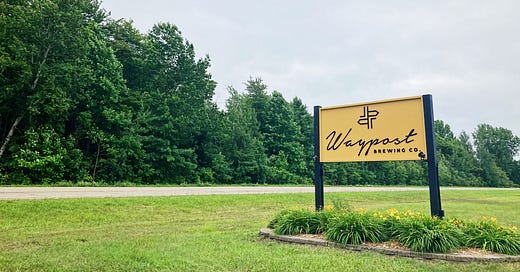



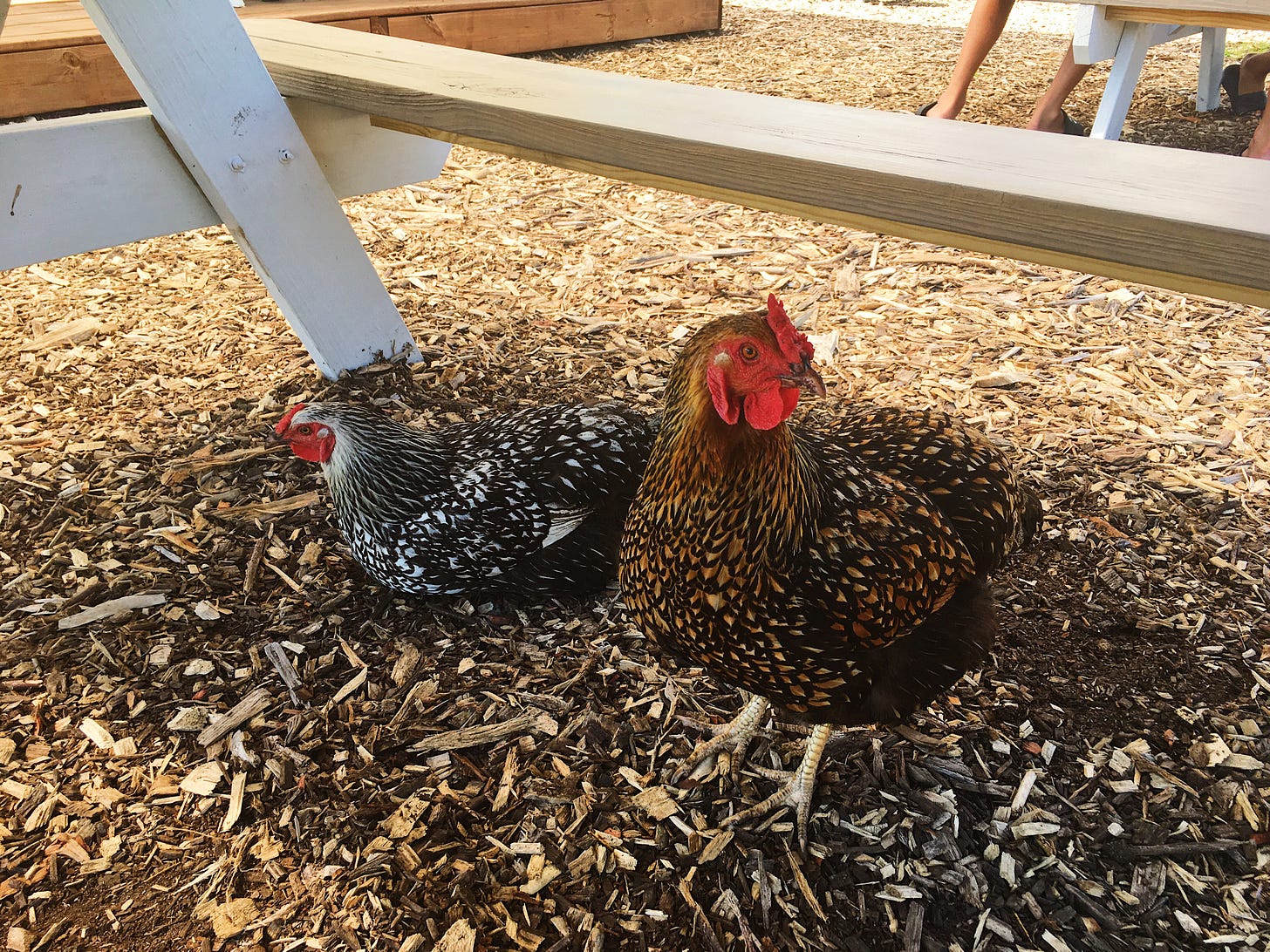
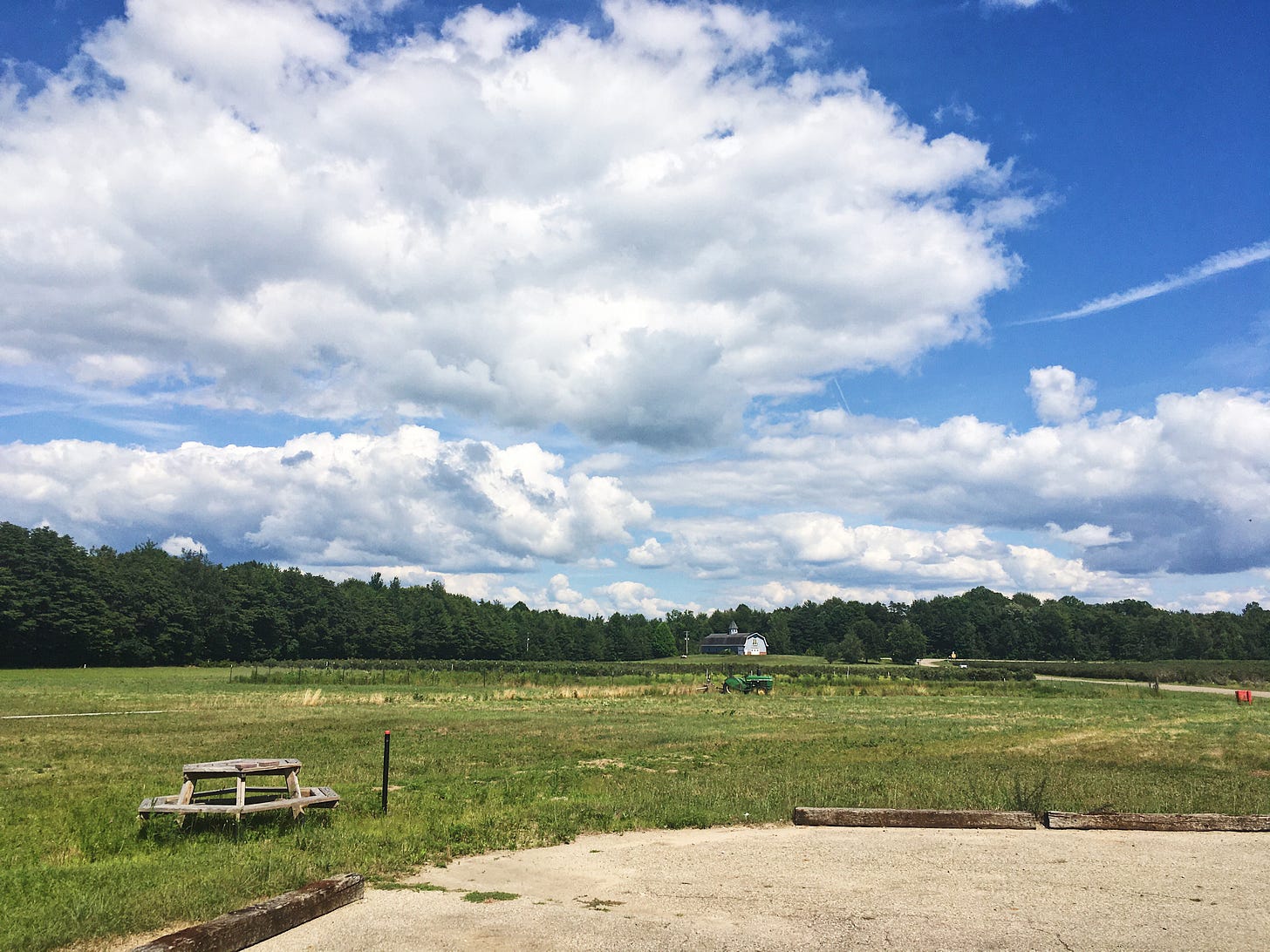
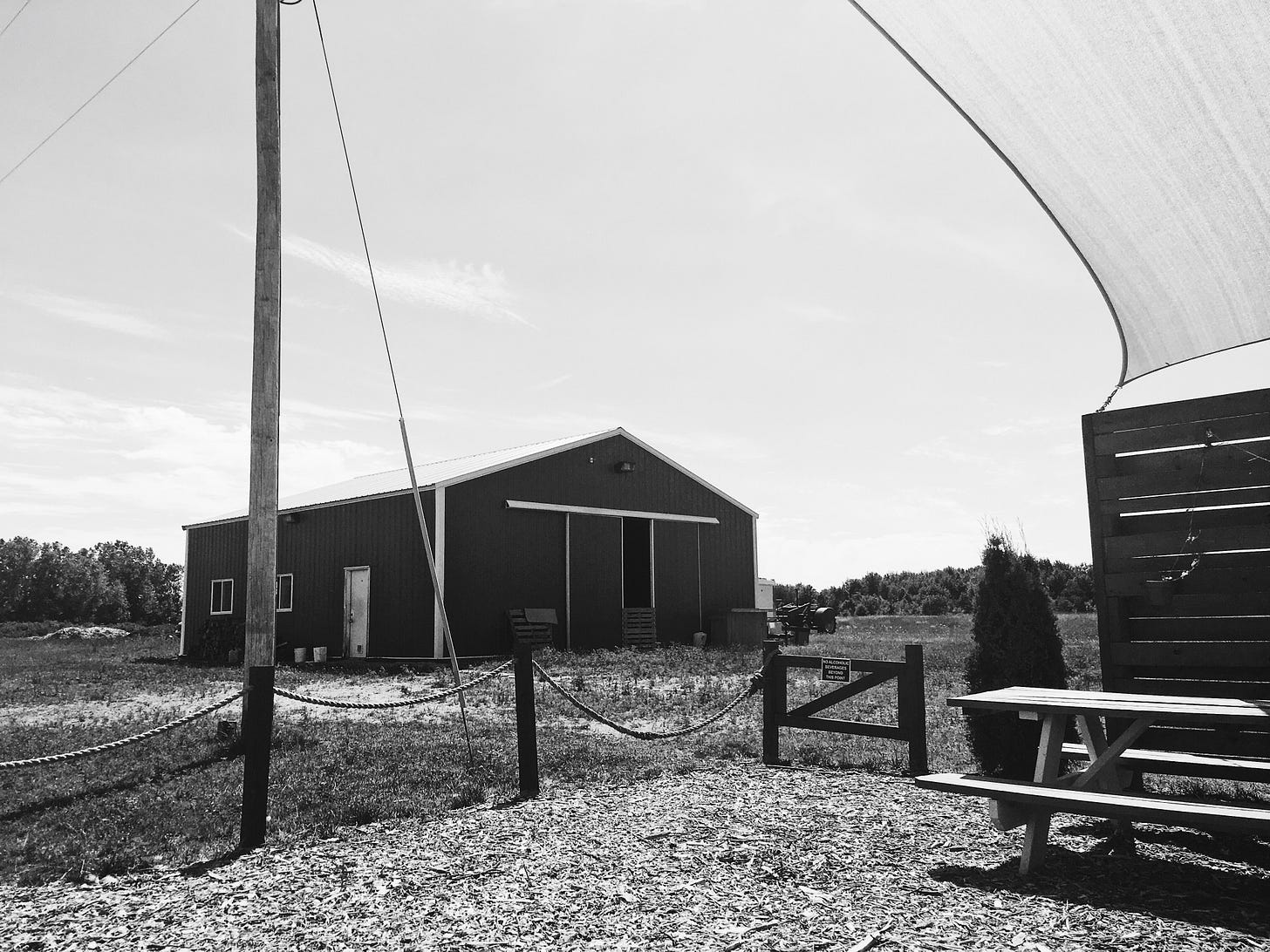
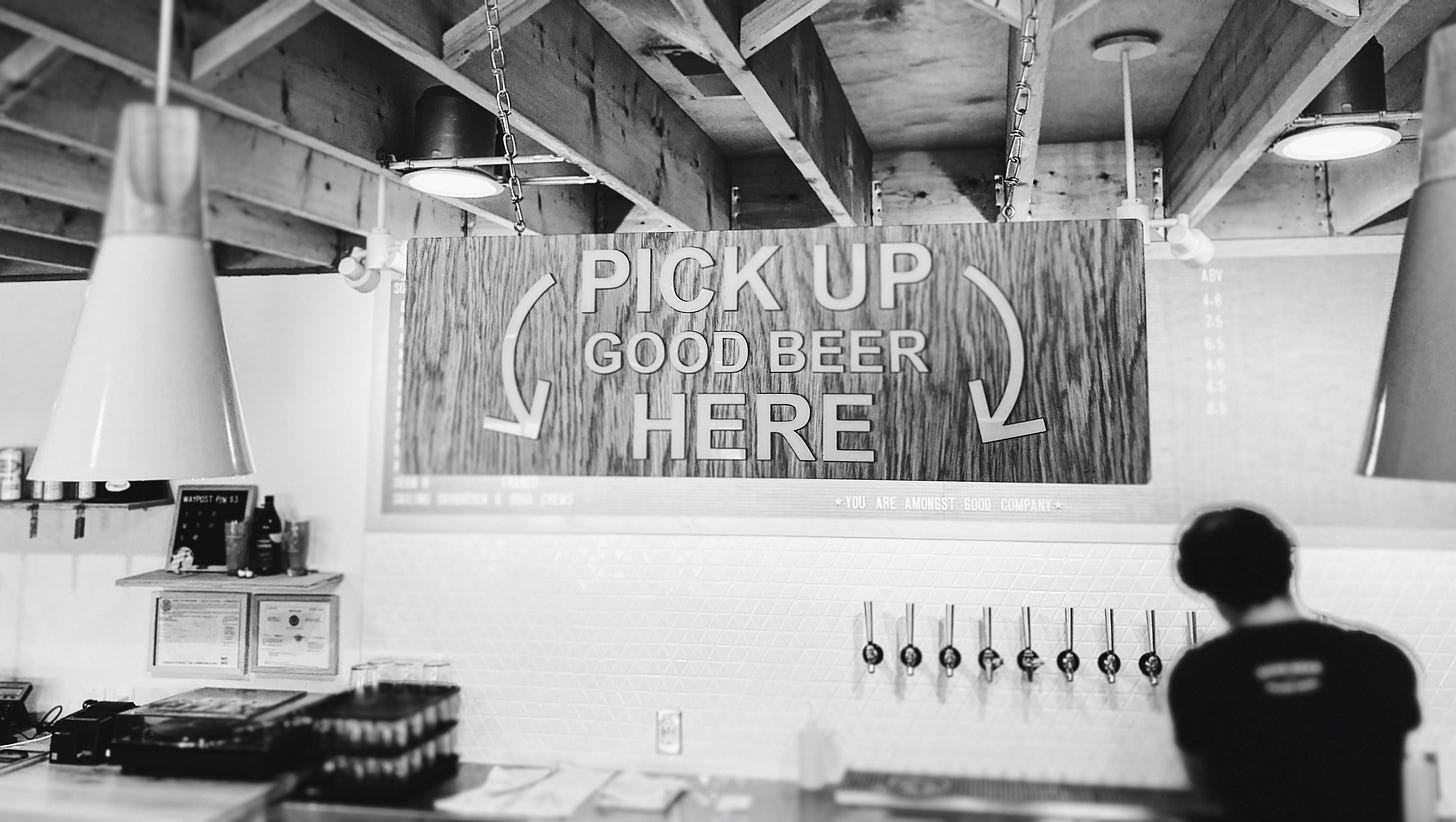
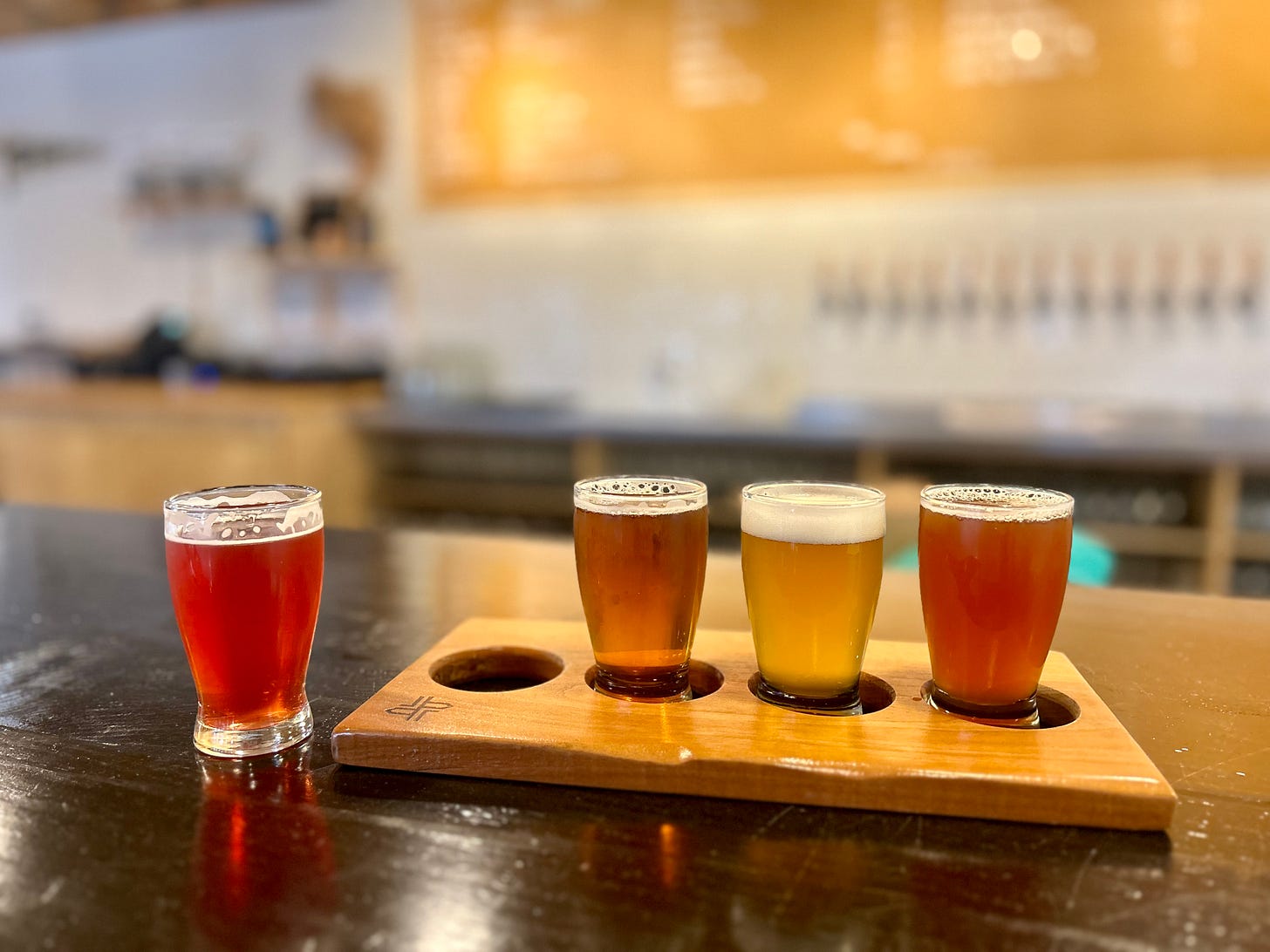
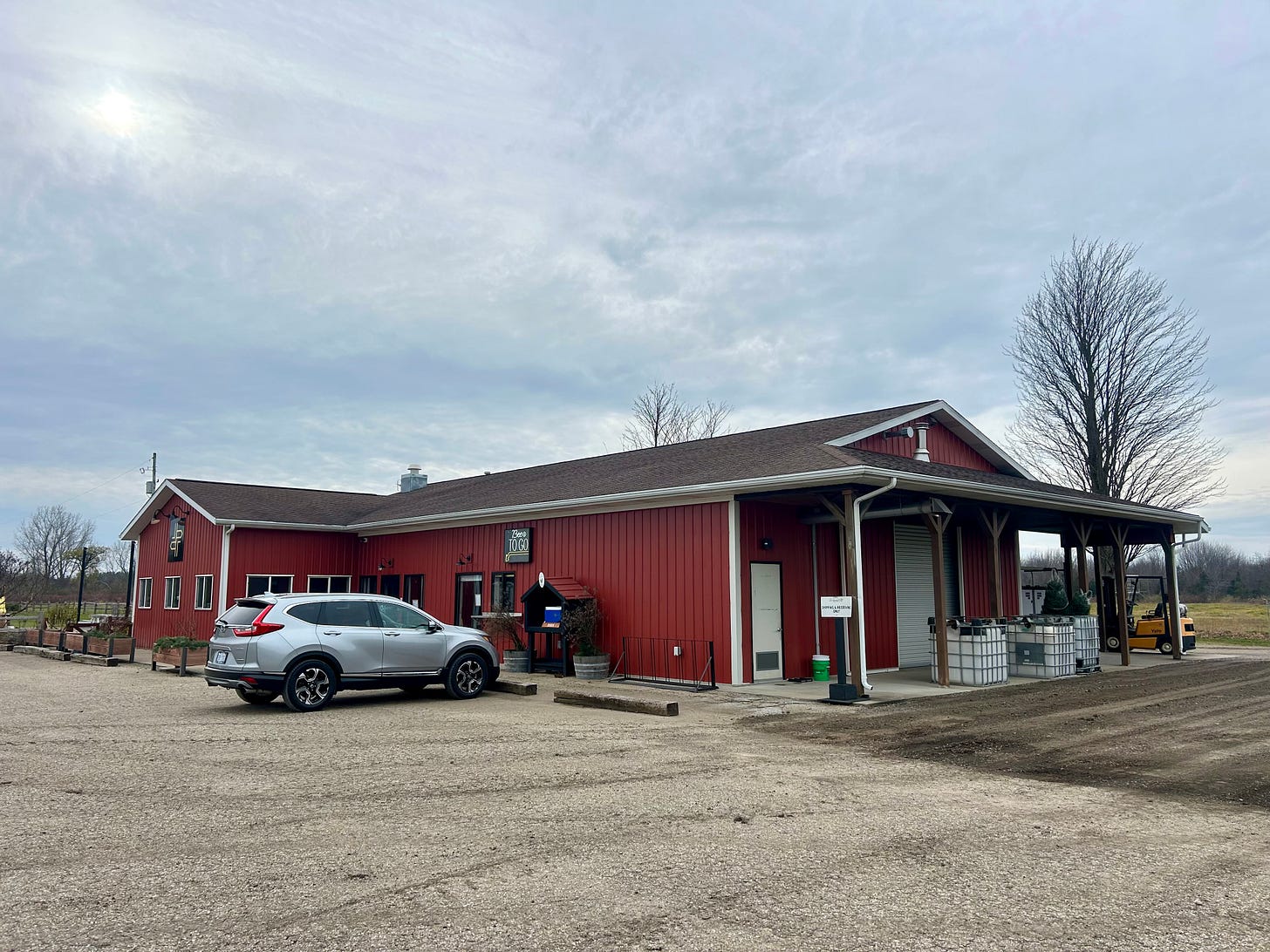
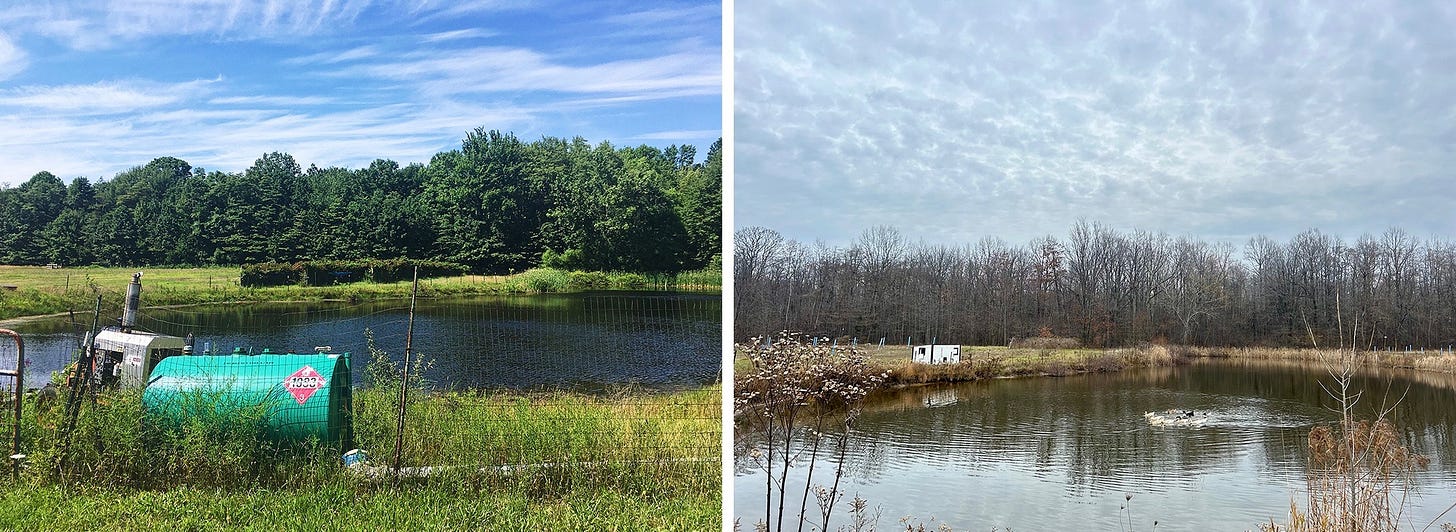
What a beautiful summary of a wonderful place. I too hope Hannah and Chuck will pop up on the brewery scene in the future.